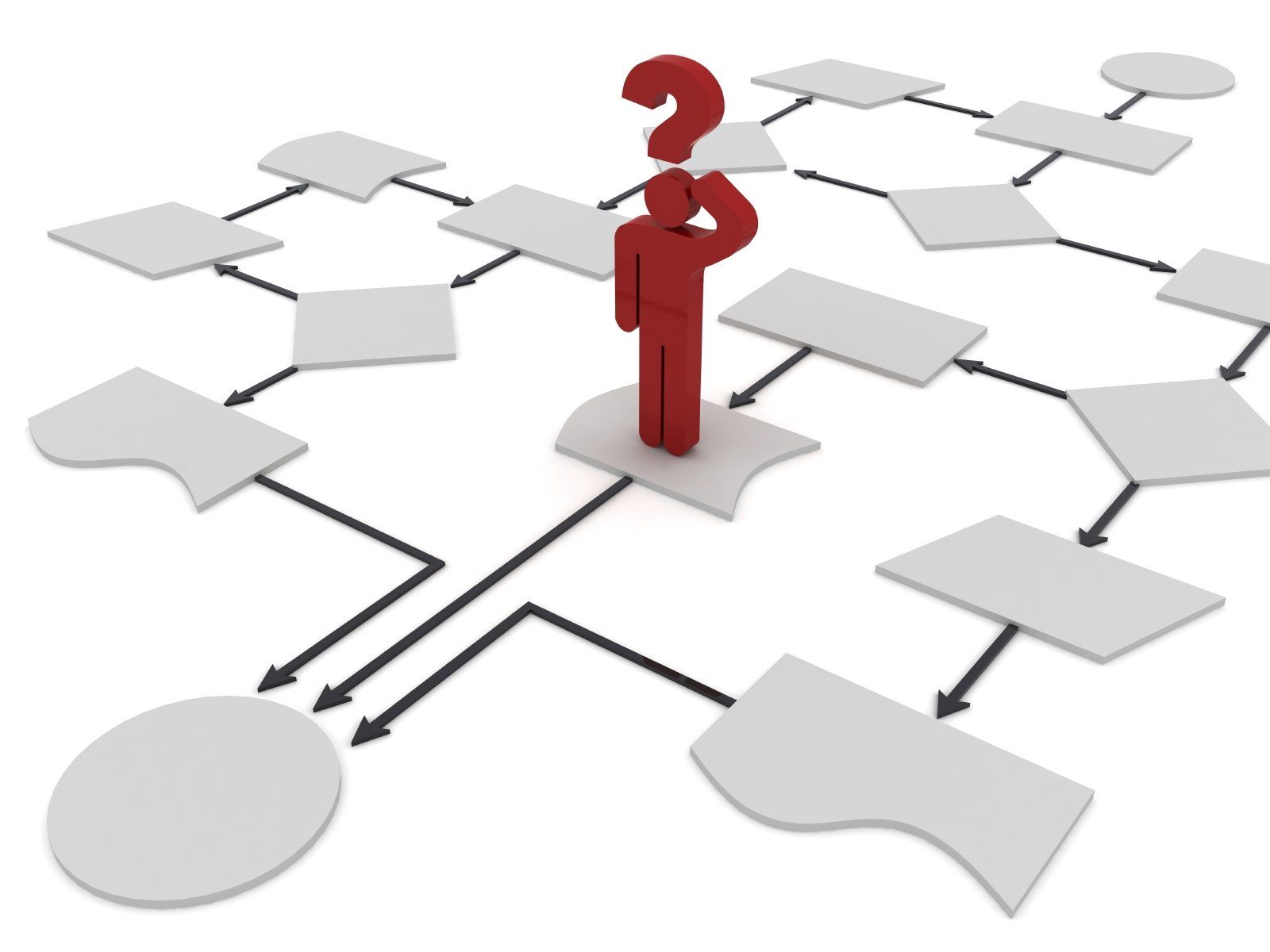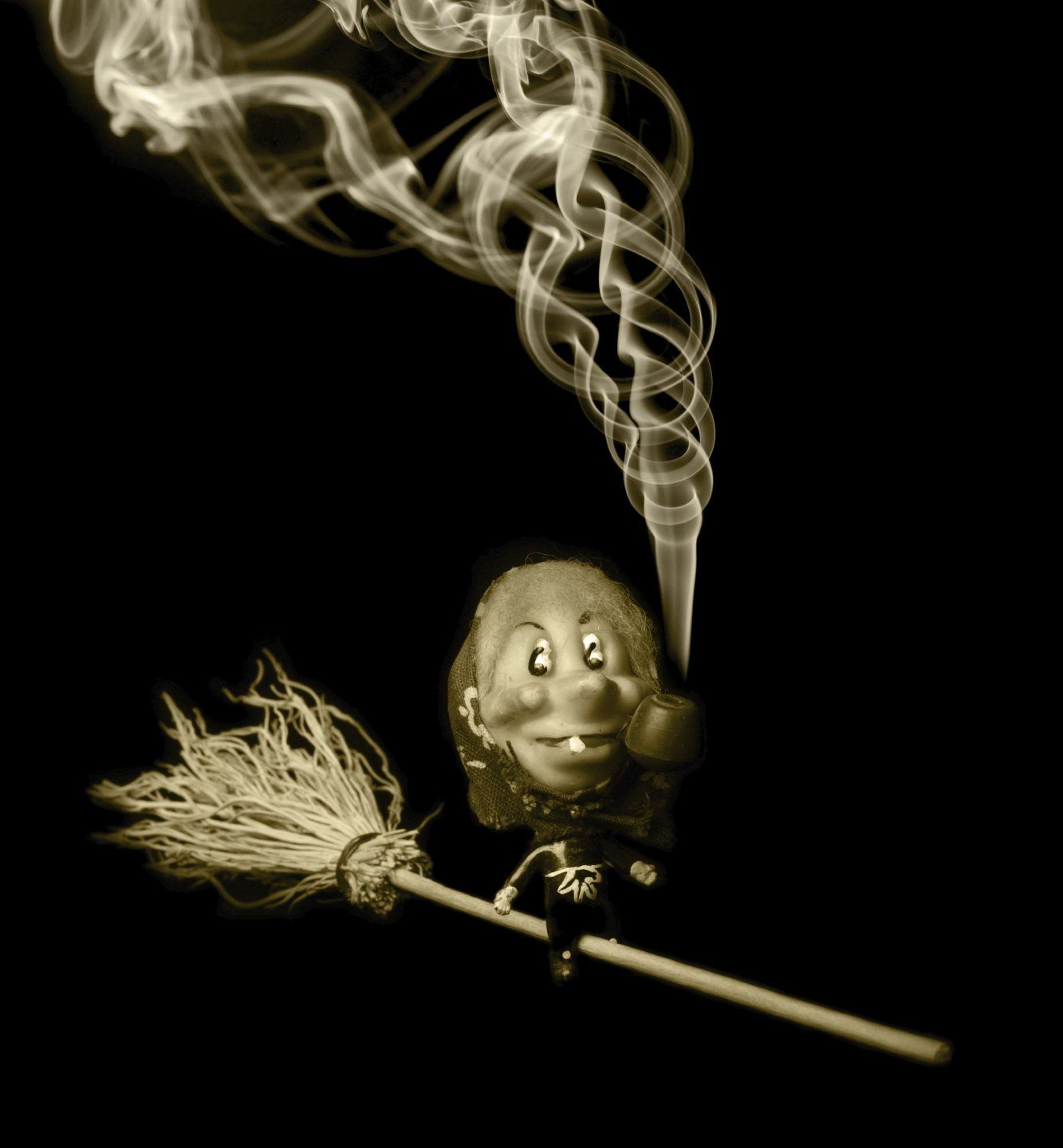Trusting After Narcissistic Abuse
Dr Supriya McKenna
Back To Basics - Learning To Trust

So perhaps you are one of those who has done your research, and plenty of it, since that fateful day of The Lightbulb Moment, when you were finally able to face the truth that your partner, parent, sibling, friend, co-worker or boss fitted the criteria for Narcissistic Personality Disorder, Sociopathy, or even Psychopathy.
Perhaps you googled everything you could find. Bought books, joined abuse forums and online groups. Commented on other people’s stories. Told your own story to anyone who would listen and tried to educate everyone you came across about the horrors of these personality types. Perhaps you even tried (inevitably unsuccessfully) to save the narcissist’s hapless next victim, the new ‘chosen one’, by attempting to tell them the truth.
Or perhaps yours was a series of slow realisations, brought on by a chance comment that struck a chord with you. Maybe you still haven’t trawled through the information that you know is available. Maybe you don’t want to. Maybe you can’t bear to open up that can of worms, because of what it says about you, the co-dependent, the endless giver, the ‘foolish victim’. Perhaps you told no one, and completely withdrew into yourself, paralysed by the shame and disbelief.
If you have opened up to those around you, perhaps you’ve been met with some sympathy. But you may have mostly got the feeling that you were being perceived by others as being too bitter, too angry, too unreasonable, or just plain nuts. (Try to take heart - people can’t understand what they don’t know, what they’ve never encountered, and they often don’t realise when they are not in a position to give advice).
You’ve probably have been shocked by the level of support and sympathy that the narcissist has received. Been dismayed at how successfully the perpetrator can portray themselves as the victim, their likeablity, charm and effortless acting often winning a them sizeable fan club. Perhaps you cringe at the memory of being their number one fan yourself, when you were the one who they chose to shine their light on. That’s normal too, as hundreds of thousands of people can attest to.
Maybe you’ve lost your job, your relationship or your family as a result. Maybe you wasted years or decades of your life, stuck in a cycle of drama that eventually spiraled out of control. Narcissistic abuse often has devastating results - the nightmare dressed as a daydream. Perhaps you, as many do, still shudder as you remember the awful day the affable mask of the narcissist finally dropped.
In my experience of dealing with the victims of narcissistic abuse, one of the hardest things to regain is knowing who and how to trust again. It’s often the case that victims have been unknowingly surrounding themselves with toxic personalities for years, and have had an inordinate number of personality disordered individuals in their lives. Being treated badly then becomes normalised, and one accepts poor behaviour without question.
So, if you are stepping out of your old life, into the new, you may well be in the process of clearing the cupboard of all those toxic relationships, and wiping down the empty shelves, ready to restock with healthy, boundaried friends.
So, when re-learning who to trust, remember this - trust should be earned, not freely given and then withdrawn only when it becomes clear that it is being abused. Here’s Dr Brene Brown’s wonderful explanation - The Anatomy of Trust.

Do I actually need a lawyer? You may be wondering whether you need a lawyer if you are divorcing, as it is possible in some countries, including in the UK, to apply for a divorce online. However, here in the UK at least, there are three bits to the process – the paper exercise of the divorce, which you don’t need a lawyer for, and the other two parts – the finances and the children. Settling the finances with a narcissist is unlikely to happen without legal input, sadly, as narcissists have a huge sense of entitlement, a need to ‘win’, a lack of empathy regarding your circumstances, a need for narcissistic supply through causing drama and conflict, a belief that you (once you have split up) are ‘all bad’ and deserving of punishment, and a need to draw out the process for as long as possible, by continually shifting goalposts. Add to that the fact that they are practised liars, and will not tell the truth about their finances, and you can see why successfully sorting things out on your own with them is highly unlikely (and probably impossible). If they decide to cause conflict with the children, as they often do, lawyers may well also be needed here. Note that it is possible to represent yourself in court, without a lawyer, but that this tends to work best later on, when you have gained experience in how the system works, and are feeling emotionally stronger. I discuss the benefits of being a ‘Litigant in Person’ in Chapter 28 of my book Narcissists in Divorce: From Leaving to Liberty - The Truth, The Whole Truth and Nothing But The Truth. In the UK there are two types of divorce lawyer – the ‘solicitor’ who does the day-to-day work and liaises directly with you, and the ‘barrister’ (who speaks on your behalf in court, and gives more complicated legal advice). If your barrister has been instructed by your solicitor you can only contact them via your solicitor. However, some barristers (‘direct access barristers’) can be instructed directly by clients, without a solicitor being involved. I need to be brutally frank here, and tell you that far too many lawyers will not disclose the reality of the dysfunctional court system to clients, and they have a vested commercial interest in protracted cases, which narcissistic divorces often become. The wrong lawyer can easily rack up your legal bills but leave you with little to show for it. This is particularly true in the UK for solicitors. So, if you happen to be a UK father, whose narcissistic wife is preventing you from seeing your children, you might want to contact Fathers 4 Justice (www.fathers-4-justice.org) before deciding on whether to instruct a solicitor. Unfortunately, no such cost-effective organization exists exclusively for mothers battling abusive fathers in the UK. However, the UK charity Familes Need Fathers (fnf.org.uk) does provide resources to parents of any gender, for a membership fee. But regardless of where in the world you live, most of you will need to know how to go about finding the right lawyer. The fact of the matter is this: most lawyers do not understand Narcissistic Personality Disorder to the extent they need to, to be able to help you effectively. And many will simply pooh-pooh the idea that your partner is a narcissist, because this is a term that commonly gets bandied around incorrectly, especially in break-ups. I recently gave a talk to 250 lawyers about NPD, during which I asked how many of them had been told by a client that their ex was a narcissist, within the last 2 months. Every single hand went up. I then asked how many of them, having spent a bit of time on these cases, now thought that they were dealing with a ‘real’ narcissist. Only five hands remained in the air, and as I gave my talk, I could see these lawyers nodding their heads vigorously, as I described true narcissistic divorce behaviors. So you can see the problem – the ‘buzzword’ use of the narcissism word, in the general population, means that lawyers are unlikely to take your concerns seriously, until significant emotional, legal and financial damage has already been done. This means that, unless you have a strong recommendation of someone who specifically understands NPD, you are going to have to interview quite a few lawyers (they will often offer free initial consultations) until you find the best one for you. It may be that you have to settle for a lawyer who understands domestic abuse and coercive control instead, but only if they are willing to learn about NPD, and will take all of your concerns seriously. It may also serve you to choose a lawyer who is not in your local area, especially as, since Covid, most consultations can be carried out remotely. You may have a distinct advantage if you do this, as an out-of-area lawyer will not have a reputation of ‘being reasonable’ to maintain with your local judges, and is more likely to actually fight for you, rather than trying to tiptoe around or placate the judge. Lawyers care deeply how their local judges view them – and this can be to your detriment. How to interview a potential lawyer When interviewing potential lawyers, you will need to: Explain the narcissist’s behaviors Explain how you have been affected Ask the lawyer specific questions Explaining your partner’s behaviors Describe the behaviors that you (and any children) have been subjected to during your relationship, with specific examples of each behavior. It’s definitely worth writing these down, to keep you focused. Include examples of: Physical abuse (often not present at all in NPD, however). Rape or sexual boundary violations. Repeatedly putting you down, criticizing you, or calling you names. Isolating you from friends and family. Manipulative behaviors. Exploitative behaviors where they have used you for their gain. Passive aggression (such as silent treatments or stonewalling you). Projection (accusing you of things that they themselves are doing or being, for example accusations of affairs or flirting). Favoring a ‘golden child’ over a ‘scapegoat’, and having an ‘invisible child’. Going through repeated cycles of being nice to you, but then being nasty (the ‘cycle of idealization and devaluation’). Lovebombing at the start of the relationship. Low empathy towards you and the children. Entitled behavior. Controlling behaviors such as: Controlling your finances, or preventing you from having a job. Restricting your access to transport. Threats, including of blackmail (e.g. revenge porn). Threats if you leave them (including threats of suicide). Monitoring how you spend your time. Monitoring your communication with others. Exerting control over your everyday life, such as dictating where you go, who you see, what you wear and preventing you from sleeping. Stopping you from accessing support services, such as medical services or specialist support (including for the children). Forcing you to take part in criminal activity such as taking the blame for their offenses (e.g. speeding tickets). Destroying or damaging household goods, or cruelty to pets Gaslighting such as by: Telling you that you are ‘crazy’. Telling you lies that make you question your reality. Rewriting history so that you question your memory. Invalidating your feelings (e.g. telling you that your feelings are ‘wrong’). Explaining how you have been affected Include examples such as: Walking on eggshells. Continually trying to please them with ‘fawning’ behaviors. Anxiety, depression, panic attacks, complex PTSD. Any physical illnesses. Loss of confidence/self-esteem/support systems. Asking the lawyer specific questions You will want to know: What they understand by the term Narcissistic Personally Disorder. If they tell you that they ‘don’t believe in labelling people’, that ‘everyone thinks their ex is a narcissist’, that narcissists are ‘just another word for high-conflict’ or that it ‘makes no difference whether your partner is a narcissist’ to the legal process and your divorce, get out of there, immediately. If they blithely tell you that they are completely au fait with dealing with narcissists, make sure they tell you the specifics of how narcissists behave in divorce. (A client of mine was once duped by his lawyer into believing that he understood NPD because he had written a blog post on his firm’s website about it. £85,000 later, and no further on in the case, it became patently clear that his lawyer’s blog post had simply been a way to jump on the NPD bandwagon, to attract clients, and in fact, he didn’t really have a clue.) How much experience they have of narcissistic divorces, and what they think the chances are of settling things out of court (through negotiation through lawyers or mediation, for example). If they pride themselves on never or rarely having cases that end up in court, they probably do not have the experience that you need, as the fact is that most divorces like this end up in court. Whether they think narcissists ‘calm down’ over time, and become more reasonable as the divorce progresses. The correct answer is that they do not. If they get this wrong, they have failed the interview. Whether narcissists have the best interests of their children at heart. If they tell you that ‘all parents love their children, whether narcissists or not’ they will not be right for you, and they will enable a lot of damage to be done before they work out the truth. Whether they will help you write any witness statements for court, and put together your financial disclosure, or whether they will just leave this to you. Whether they will go through your partner’s financial disclosure (such as their bank statements) in detail with you, looking for discrepancies and missing information, or whether they expect you to do this without them (most simply do the latter). Whether they are willing to learn about NPD (on their own time) and take on board what you tell them about it, so that your case runs more smoothly. Key takeaways It may take a while to find a lawyer who fits the bill. But whatever you do, don’t choose a ‘nice’ lawyer (with little experience of domestic abuse, coercive control or NPD) over a less personable one who does have the required experience. So often, my clients admit to me that they gave their kindly lawyer repeated chances, because they ‘liked them’, and because they thought that they could learn about NPD during their case, and so help others later on. I’m going to be stern here: you do not just need ‘nice’, ‘understanding’ and ‘sympathetic’ – you need effective too. And as to educating your lawyer so that they can help others (if this is part of your thought process) – again, this may go against the grain, but now is the time for prioritizing your needs and those of your family. I also have to caution you that a senior lawyer who seems very experienced may actually be too stuck in their ways to be effective in your case, although that’s not always true. Conversely, a very junior lawyer might find themselves overwhelmed by everything that comes their way during your case, but be unable to be honest about this with you, and carry on regardless. I’ll warn you now – you may well have to change lawyers at some point in the process, and I explain this further in Chapter 31 of Narcissists in Divorce: From Leaving to Liberty - The Truth, The Whole Truth and Nothing But The Truth , from which this blog post was adapted.

The word "narcissist" is ubiquitous, but are we using it correctly or is it just a buzzword? Expert Dr Supriya McKenna explains what real narcissism is Do you know a narcissist? If you think of your everyday acquaintances, who springs to mind as being a possible narcissist? Your housemate, who is too selfish and lazy to do her own washing up? Your sister, who has never left the house without full make up on? Your work colleague, who is obsessed with designer clothes? Your partner, who cheated on you? Your best friend, who insists on driving a sports car he can’t afford? That date, who ghosted you? But are these people actually narcissists? Well, maybe—but having these traits in isolation doesn’t tell us much. How to recognise a narcissist True "narcissism" is actually Narcissistic Personality Disorder (NPD), a real, diagnosable personality disorder, and there is a precise range of very specific behaviours that result from having it. These behaviours go well beyond being just mean, vain or selfish—undesirable and irritating though these are. "You (or someone you know) will definitely know a real narcissist—but it might not be who you think it is" As a society, we have collectively misappropriated the narcissist word—and in using it incorrectly we are downplaying the seriousness of what real narcissism (NPD) is. And worse, because of this, we are missing the true narcissists in our midst. Narcissistic Personality Disorder is estimated to affect up to one in twenty people, although exact figures vary. Each narcissist affects several people to some degree—their partners, children, extended family, friends, work colleagues and even their casual acquaintances. What is Narcissistic Personality Disorder? NPD is fundamentally a condition of low empathy, where the person has a very limited ability to step into another person’s shoes and feel their pain or joy (or any other emotion).This means that narcissists relate to people on a very different level to an empathic person. Essentially, they cannot deeply care about you, other than in the context of what you can do for them. Confusingly, narcissists are usually able to feign empathy. If we add this low empathy to another hallmark feature of narcissism, a sense of entitlement, you can see how narcissists are able to exploit people for their own gain.The narcissist you know may be exploiting different people for different things. They might be taking credit for other people’s work, using their partner as a domestic slave or provider of sex, and using their children as a way to gain admiration from others. "Narcissists are good at feigning empathy, but they cannot truly feel it" Narcissists see people merely as objects, and their exploitation of others often tips into psychological (and sometimes also physical) abuse. Are narcissists born or made? NPD is partly genetic, but it mostly results from how, as children, the person adapted to a difficult upbringing. As a child, the narcissist developed coping strategies which became "wired in". It’s this wiring that leads to the specific patterns of behaviour that adult narcissists exhibit. The vast majority of people with NPD cannot be cured, although a few specialised psychotherapists report some success. At the core of every single narcissist is a feeling of low self-esteem and shame. But these are feelings which a narcissist cannot bear, so they construct a false persona that they hold up to the outside world to hide behind. "At the core of every single narcissist is a feeling of low self-esteem and shame" This false persona is a shield. It protects the narcissist from feeling their true feelings—and it is very convincing to the onlooker indeed. But a narcissist’s protective false persona can only survive in the presence of external validation. "Narcissists need attention from others, at all times, preferably through admiration and adoration." In the absence of this, they secure attention by causing drama and conflict—and even by instilling fear into others. When a narcissist is getting enough attention their false persona is strong, and they can believe that they are special and unique. The most important thing to know about narcissists is that it is their desperate need to feel special that drives all of their behaviours, and that their need for attention (which is known as "narcissistic supply") is constant—their armour will crumble without it. Types of Narcissistic Personality Disorder There are four major types of false persona to look out for, which can overlap: The Exhibitionist Narcissist appears to be devastatingly charismatic, and may be clever, funny, or very sexy. They relish attention. The Devaluing Narcissist is openly toxic. They put people down in order to feel better about themselves through ridiculing, shaming, badmouthing and name-calling. The Communal Narcissist presents themselves as a do-gooder—needing to be seen by others as the most generous, most kind or the most caring. And the Closet Narcissist, the hardest type to spot, shies away from the limelight, but often associates with people who are special to feel special by association. They get their attention in much more sneaky ways than the other types of narcissist—often through playing the victim, and they appear quiet, shy and effacing. "But, regardless of outward type, all narcissists exploit others, and no matter how much love they receive, they cannot be "loved better". " Signs of narcissistic behaviour Telltale behaviours of narcissism "Love bombing" at start of relationships Repeating cycles of niceness and nastiness An inability to be alone Lack of deep, long term friendships Inability to take the blame or responsibility, blaming others instead An inability to apologise and mean it Violating boundaries Lying and gaslighting Episodes of rage Jealousy Accusing others of what they themselves are doing Moral hypocrisy Playing the victim Lack of empathy Entitlement Exploiting others Aggression (including passive aggression) Devaluing and badmouthing others (putting them down, ridiculing them) Manipulating and playing people off against each other Selfishness Conditional, shallow love A need to control others "Lying, gaslighting and manipulation are all hallmark traits of Narcissistic Personality Disorder " A true narcissist will exhibit nearly all of these behaviours and, the closer you are to them, the more of them you will see. But because they intersperse them with nice times, playing what I call "Nice Narcissist, Nasty Narcissist’" you are likely to find yourself sucked back into the relationship repeatedly. This is what real narcissism looks like, and it’s unhealthy, toxic and hard to escape from. But it’s not so hard to recognise—once you know what to look out for. This article originally appeared in Reader's Digest - you can read it here .














